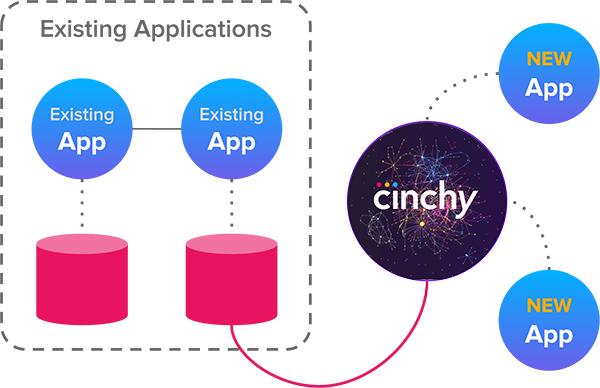Controlled Data Co-Production
Dynamically Collaborate, Innovate, and Drive Business Value
Data co-production is a revolutionary approach to collaborative data management, redefining how teams and systems work together on shared datasets.
Unlike conventional methods that involve copying data across various systems, data co-production focuses on creating a dynamic, single source of truth through collaborative efforts, allowing different teams and systems to work independently while contributing to and enhancing a shared artifact.
Efficiency and Accuracy
Data co-production streamlines processes, significantly reducing the risk of errors and ensuring that data remains accurate and up-to-date, eliminating the need for repetitive copying and coordination efforts.
Federated Governance
Data co-production operates under a federated governance model, providing controlled collaboration where teams can work collaboratively without compromising security, ensuring compliance, and maintaining the integrity of the data.
Real-Time Adaptability
Data co-production allows enterprises to respond swiftly to changes, updates, and evolving business needs, fostering agility and innovation, embracing the dynamic nature of business with real-time adaptability.
Much like any Google Drive file can be controlled and edited in a much more secure and easier manner than multiple versions of a Word doc or Excel spreadsheet. Now so too can all your business data.
When Should Your Enterprise Use Data Co-Production?
When aiming to revolutionize collaborative data management, data co-production is the go-to strategy for breaking down data silos, promoting cross-functional insights, and leveraging data as a strategic asset to drive better decision-making and innovation within the organization.
Data co-production becomes especially important when:
Collaboration Across Teams is Crucial
If your enterprise involves multiple teams working with interconnected datasets, data co-production ensures seamless collaboration without compromising data integrity.
Adaptability and Innovation are Priorities
When your business requires the flexibility to adapt swiftly to changes and innovate continuously, data co-production provides the dynamic framework needed for real-time adaptability.
Enhanced Governance is Essential
For enterprises operating in highly regulated industries, data co-production ensures that collaboration happens within a framework of federated governance, maintaining compliance and data integrity.
Top Use Cases for Data Co-Production:
Customer Record Management
Imagine sales, marketing, support, and finance teams collaborating on a unified customer record. Each team contributes valuable insights, creating a comprehensive and up-to-date profile without the need for central data management.
AI-Enhanced Business Intelligence
Leverage data co-production to provide large language models with access to a variety of data sources. This allows for more sophisticated AI-driven business intelligence, generating valuable insights that traditional models might overlook.
Dynamic Product Information
For businesses dealing with extensive product catalogs, data co-production facilitates collaborative updates, ensuring that product information remains consistent across various systems.
Cross-Functional Project Collaboration
When diverse teams collaborate on cross-functional projects requiring shared datasets, data co-production ensures efficient collaboration, reducing errors and enhancing project outcomes.
Make change easy by creating a data ecosystem that's open and flexible
Improved Decision-Making
When data is shared and collaboratively analyzed, it can lead to more informed and data-driven decision-making. This is especially important in businesses where decisions impact multiple functions or units.
Enhanced Data Quality
Collaborative efforts can help identify and address data quality issues more effectively. When multiple stakeholders work with the data, errors and inconsistencies are more likely to be discovered and resolved.
Faster Innovation
Collaborative data initiatives can accelerate innovation by enabling teams to leverage data from different sources to develop new products, services, or solutions.
Data Governance
Establishing clear data governance policies and practices is essential for successful data collaboration. This includes defining data ownership, access controls, data stewardship, and data quality standards.
Don't 'rip-and-replace'
Get started with your next project
This is not a rip-and-replace solution. You do not need to rebuild your entire data ecosystem in order to benefit from data co-production
By starting from your next project, you are simplifying work you already doing, and setting yourself up for success for each new future project.

Tell us about your project
Connect with our team to see how data co-production can simplify your next project.